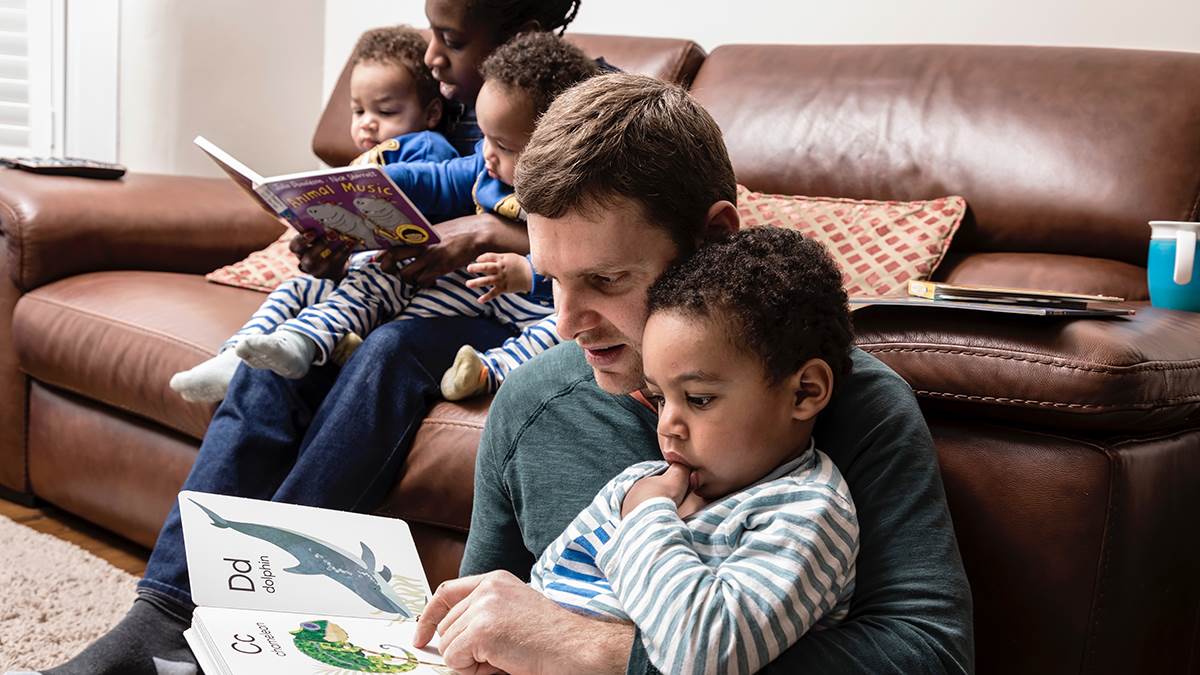Experts call to put the needs of babies and the youngest children at the heart of the next Welsh Government
Published on: 02 March 2021 Author: BookTrust Cymru
BookTrust Cymru is part of a group of leading Welsh children’s charities is calling on all political parties to put the needs of babies and the youngest children at the centre of their policies for the next Senedd.

BookTrust Cymru is part of a group of leading Welsh children’s charities is calling on all political parties to put the needs of babies and the youngest children at the centre of their policies for the next Senedd.
The calls come in response to a growing body of evidence pointing to the damaging impact of lockdown on babies and young children. Recent research has indicated increased concerns amongst new parents about their mental health, including increased anxiety and ability to cope – and that families already facing disadvantage have been worst affected.
In addition, research points to ‘hidden harms’ affecting children aged 0-2 in particular, including reduced access to services, health and developmental risks associated with increased time indoors and restricted social interaction, and increased likelihoods of exposure to traumatic experiences and material deprivation.
The call comes from the Early Years Action Group, convened by Children in Wales and comprising BookTrust Cymru, Early Years Wales, Home Start Cymru, Mudiad Meithrin, NSPCC Cymru/Wales, Play Wales, PACEY Cymru and Save the Children.
Anna Westall, Policy Officer at Children in Wales, says: ‘We have known for some time just how important the first 1,000 days are for the rest of a person’s life. This period has a long-lasting impact on children’s intellectual, emotional and social development, affecting educational outcomes, future relationships and opportunities and longer-term physical and mental health. Of course, rich and positive experiences also create immediate benefits for children, especially for their wellbeing. Much attention has been given to the experiences of school-age children during Covid. But we cannot afford to overlook the needs of our youngest children if we are to avoid lengthening the time it takes for us to deal with the impact of the pandemic.’
The call asks political parties to commit to putting the needs of babies at the heart of decision-making, and to back this up with funding, increased coordination across services and Cabinet-level oversight.
The group is also calling for increased support for those who care for and work with children, from parents and carers to early years practitioners and other professionals, as well as support to increase wider public awareness of why the first 1,000 days are so important.
Dr Sarah Witcombe-Hayes, Senior Policy Researcher at NSPCC Cymru/Wales, says: ‘Babies born during the pandemic have been reliant on care from parents that are more likely to be experiencing heightened stress, social isolation and mental health problems. But many new parents are not receiving the mental health support they need because there are gaps in these vital services in Wales. Urgent action is needed to help families recover by ensuring that perinatal mental health support is available for every family no matter where they live. Without this there is a real concern that the pandemic will have a detrimental impact on the mental health and wellbeing of parents and babies that is severe and long-lasting.’
The group also emphasises the importance of investing in supporting children at home, as well as in schools and settings, and to learn from the experiences of Covid – both positive and negative.
Helen Wales, Head of Country for BookTrust in Wales said: ‘The pandemic has brought learning into the home for so many children and families. This hasn’t always been easy, but evidence is clear that a positive home learning environment can play a vital role for children, especially in the years before school. We need to make sure that the some of the positive experiences of being together during lockdown that many families have had at times are not forgotten, and that we build on them for the future. In particular, we know that sharing books, stories and rhymes have been really important activities for many children over the last twelve months, in terms of both learning and mental health. These activities create opportunities for escape and relaxation, as well as for fun, shared experiences with other family members and play a key role in a positive home learning environment.’
Topics: Welsh language, News, Wales
